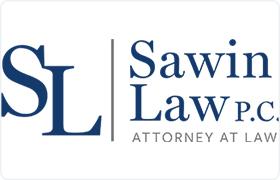Middleboro Divorce & Family Law Lawyer, Massachusetts
Sponsored Law Firm
-
 x
x

Click For More Info:
-
Sawin Law, P.C.
99 Derby Street Suite 200 Hingham, MA 02043» view mapDivorce & Family Law A Fierce Advocate On Your Side
At Sawin Law, P.C., we firmly believe that family should always come first. We also believe that every family deserves high-quality legal representation.
800-941-7190
Suzanne M. Bunszel
Divorce & Family Law
Status: In Good Standing *Status is reviewed annually. For latest information visit here
FREE CONSULTATION
CONTACTAnna Olver Klimas
Real Estate, Employment, Divorce & Family Law
Status: In Good Standing *Status is reviewed annually. For latest information visit here Licensed: 20 Years
Elana Mikelus Gordon
Employment, Divorce & Family Law, Criminal, Business
Status: In Good Standing *Status is reviewed annually. For latest information visit here Licensed: 13 Years
Michael S. Cahill
Divorce & Family Law
Status: In Good Standing *Status is reviewed annually. For latest information visit here Licensed: 29 Years
George N. Asack
Lawsuit & Dispute, Family Law, Child Support, Divorce & Family Law, Divorce
Status: In Good Standing *Status is reviewed annually. For latest information visit here Licensed: 47 Years
Donald S. Crotty
Divorce & Family Law, Criminal, Accident & Injury
Status: In Good Standing *Status is reviewed annually. For latest information visit here Licensed: 38 Years
Maria Terese O'Connell Unda
Real Estate, Lawsuit & Dispute, Divorce & Family Law
Status: In Good Standing *Status is reviewed annually. For latest information visit here Licensed: 34 Years
Ahmed Farouk Ahmed
Lawsuit & Dispute, Health Care, Divorce & Family Law, Bankruptcy & Debt
Status: In Good Standing *Status is reviewed annually. For latest information visit here Licensed: 11 Years
Frank J. Baldassini
Real Estate, Lawsuit & Dispute, Government, Divorce & Family Law
Status: In Good Standing *Status is reviewed annually. For latest information visit here Licensed: 48 Years
Gwynne Gorton Zisko
Estate, Divorce & Family Law, Child Custody
Status: In Good Standing *Status is reviewed annually. For latest information visit here Licensed: 38 Years
 Christopher Sawin Hingham, MA
Christopher Sawin Hingham, MA Practice AreasExpertise
Practice AreasExpertise